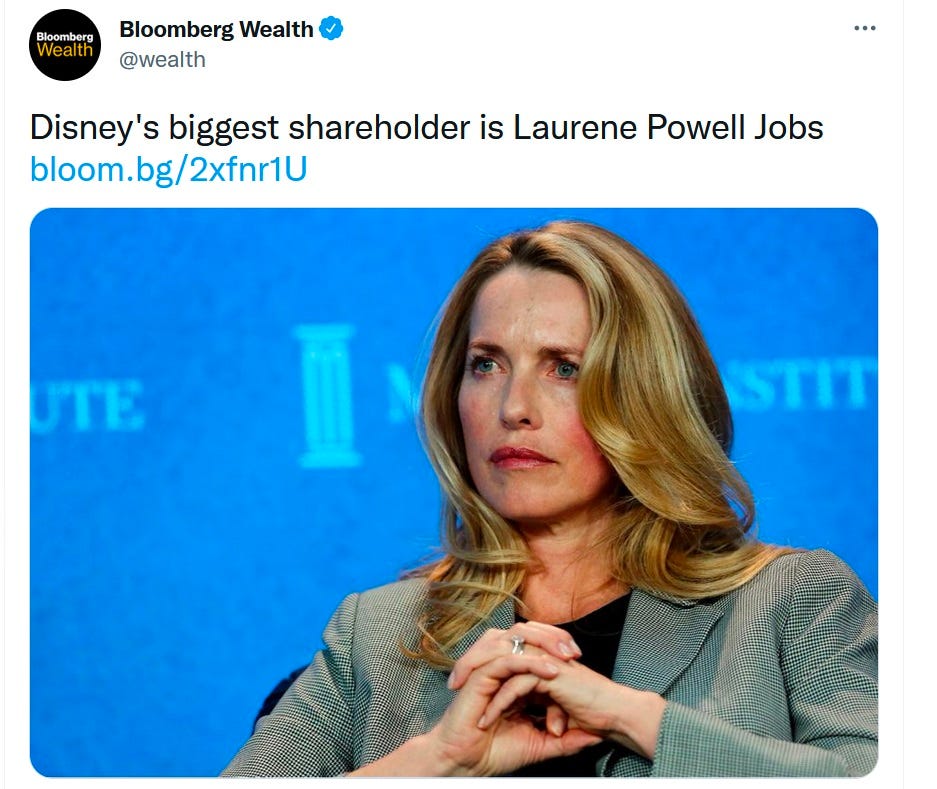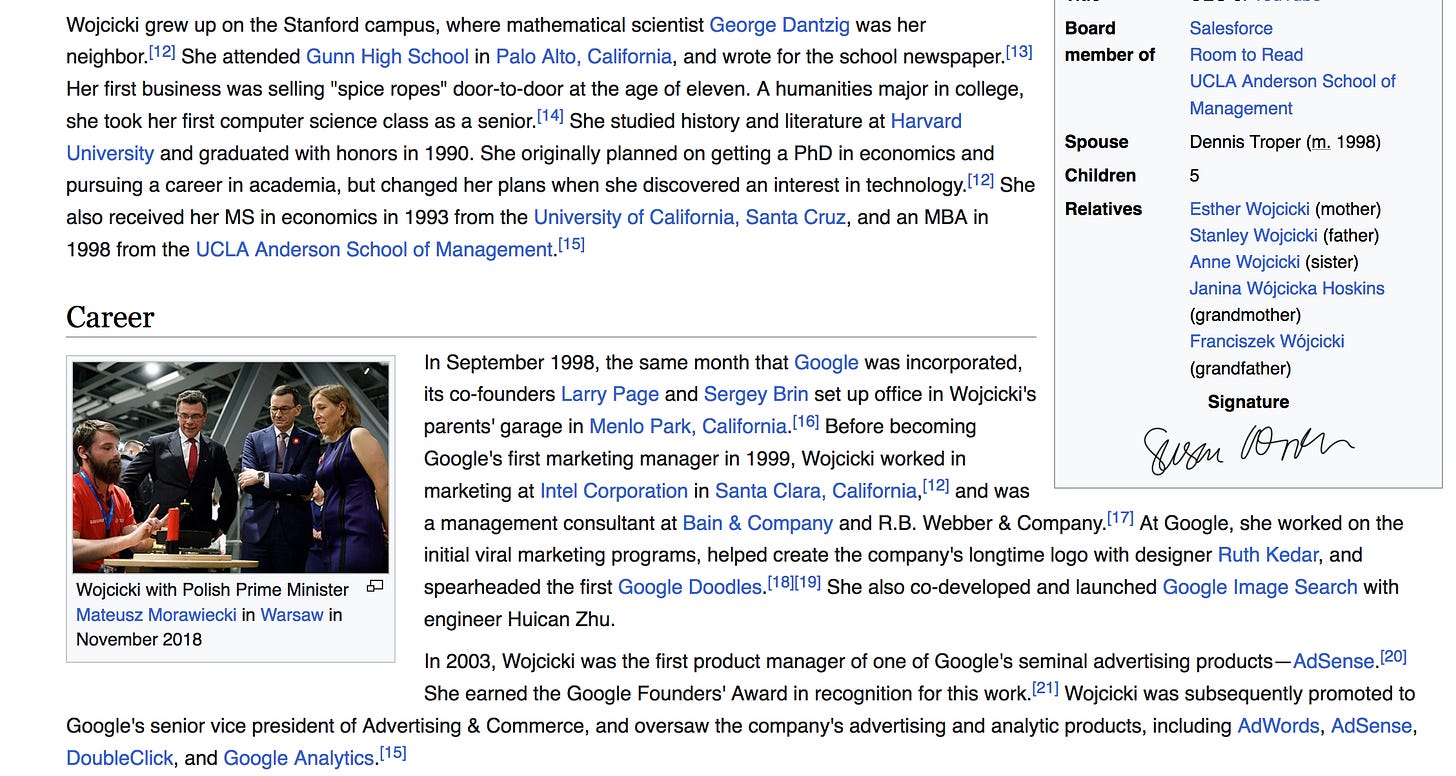How a Single Person Changes a Culture
And what would happen if Miles Davis were a corporate CEO
My recent article on the turnaround at Barnes & Noble generated a huge amount of feedback. At last count, that one article got more than 350,000 views—and just for a story about a bookstore.
That’s encouraging in its own right.
The Honest Broker is a reader-supported guide to music, books, media & culture. Both free and paid subscriptions are available. If you want to support my work, the best way is by taking out a paid subscription.
Many people shared their firsthand experiences with the book-friendly approach pursued by Barnes & Noble’s new boss James Daunt. But I especially liked this response from the spouse of a graphics design worker. It shows how a change of one person at the top can not only improve a business but make life better for workers far away from head office:
My spouse has worked as a graphic designer for Barnes & Noble for several years, and with the current hybrid work mode, I have more of a front seat to see what they are working on. It has been so refreshing to see work go from developing publisher required graphics for the Barnes & Noble website to far more interesting and unique graphics based on Daunt's initiatives.
While I am happy to see the changes being made at her company, I am also happy to see the changes in their creative workflow process. It is as if Daunt's new directives have helped to unleash creative gifts that seem to have been kept dormant due to the short-sighted, flat, dated and panic-driven approach of former CEO Riggio. So there's a domino effect occurring at multiple levels, empowering many different cogs of the machine.
So when I read your article, it helped me to step back and see the bigger picture of creative passions at work.
Another longtime Barnes & Noble employee commented that the single biggest difference at the stores now is that “everybody is happy!”
It sounds too good to be true. But even occasional workers felt the new vibe.
I share these reactions, because many other sectors of our culture (especially music) suffer from a similar malaise. And in most instances, the problems start at the top.
I’ve seen in so many different circumstances how the entire organization takes on the personality of the CEO—for better or worse. I’ve also seen how the replacement of a single individual can turn a bad situation into a great one, and vice versa.
The case of Steve Jobs is fascinating, and perhaps alarming too. He left Apple twice, and both times something similar happened.
In the first instance, Jobs was fired as CEO in 1985. The last thing he did before losing his job was launch the Macintosh computer. When he returned to Apple 12 years later, the single biggest source of revenue for the company was still the Macintosh. After more than a decade, the company was depending on the creativity of the guy they fired.
Steve Jobs died in 2011, and we have now reached the exact same time lag as before. Twelve years have elapsed since Jobs’s final departure, and the last big project he undertook before his death was the iPhone. And now after a dozen years, Apple’s largest source of revenues is still the iPhone. Once again, they are riding the momentum of his creativity, and have done shockingly little to expand his legacy.
By the way, in the interim between the two stints as Apple CEO, Jobs founded NeXT and ran Pixar. Fifteen Pixar films now rank among the 50 highest grossing animated films of all time, and they have won 23 Academy Awards. And because of his sale of Pixar to Disney, the entrepreneur’s widow Laurene Powell Jobs inherited 138 million shares of Disney stock.
That’s pretty good results for the lull in your tech career after you’ve been fired.
I know Jobs has many detractors. And maybe he was a hardass boss. In fact, he almost certainly was a hardass boss. But it’s tough to ignore those results—which not only changed a company but the entire culture of our times.
Yes, one person can make a huge difference. But too often the impact is negative.
As we saw in the case of James Daunt, his authentic love and passion for books makes a huge difference. I suspect something similar was true of Steve Jobs.
I wish some psychologist would conduct a personality profile of the top people at the 10 most influential music companies, and see whether they demonstrated love of music at an early point in their lives. (By the way, I would also love to conduct a listening test of major label bosses, to see how much they discern when hearing music. But they would never allow that, so it’s an idle dream.)
For a start, go check out the Wikipedia entries for the CEO of YouTube, the CEO of Spotify, the CEO of Apple, and the head of Apple Music, etc. These folks have more influence on our musical culture than any of us—but you would never guess it by looking at the (illustrious, of course) descriptions of their formative experiences.
Did they even take a piano lesson, or sing in a choir, or play tambourine in the backyard?
Here’s the CEO of YouTube. It’s a very impressive story, but with no apparent connection to music.
You get the idea—child of a mathematician, sales skills demonstrated at age 11, tech successes focused on advertising metrics. This is what a superstar of Silicon Valley looks like.
Manfred Eicher, by comparison, founded and runs a music business (ECM) which has both made money and enriched the culture for more than a half century. What was his background and training?
Here’s how his early years are described in his bio:
He doesn’t have a fancy degree and probably couldn’t write a single line of software code. But, contrary to the conventional wisdom, I believe that Eicher is a better and more trustworthy boss of a culture business than any of the above individuals. That’s because he loves the music and has unshakeable core values that will guide him to make good decisions.
I’m probably better positioned to say these things because my own life straddled both worlds. The resume from my early years is similar to the YouTube CEO’s, but my sense of priorities is more aligned with Manfred Eicher’s. If I had to choose which of the two I would trust to run an institution that shapes our culture, it’s an easy call.
(For more detail on this, check out this article, where I analyzed Eicher’s career and highlighted the five key factors underpinning his 50 year track record of success.)
I’m reminded of what my brother Dana says about this subject. He’s better known as a poet nowadays, and recently stepped down from his role of Poet Laureate of California, but Dana also managed businesses in his early days—in some instances, huge businesses.
He was once asked whether his training as a poet ever helped him in the corporate world.
Here’s what he said:
This is absolutely true.
I’ve often ridiculed all those books and articles about how jazz musicians can teach us management techniques. I’ve pointed out that Miles Davis would get fired his first day on the job in a modern corporation. He wouldn’t even last until noon.
You can’t do that stuff in the office and get away with it.
But, in all fairness, Miles Davis might have made an outstanding CEO—if he had somehow found a way to survive the conformity, kowtowing, and groupthink necessary to survive his rise to the top.
And Miles would have absolutely been a hardass boss.
At the lowest levels in a corporation, those analytical STEM skills help you get a promotion and a raise. But at the highest levels of management, your creativity, imagination, and core values are tested constantly. When you face the biggest decisions, there are so many trade-offs that no spreadsheet or algorithm can guide you—everything from worker motivation to community support can be at stake.
You can’t even quantify those things, let alone calculate their trade-offs. You need something deeper. It’s more a matter of values and creative insight than math.
Barnes & Noble found a new CEO who had the right kind of values. Let’s find a few more, and but them in places where they do some good. Maybe we should even look for someone like Miles Davis.










This is so refreshing, Ted. I few like I’m getting personal McKinsey style insight from someone whose values actually align with mine. There’s so much to learn but such a resonant context. Thank you.
I agree completely with your analysis of Apple post-Jobs in both instances. And yet, if he hadn't been friends with Woz, who gave him a product to sell and to build a new company around, he'd never have climbed ANY corporate ladder. Nolan Bushnell tells the story of how Jobs had such bad b.o. and breath that nobody else at Atari would work with him, or even sit by him - but Bushnell still felt the kid had something. So he pulled Jobs aside and told him he was promoting him to night supervisor - except that the entire night crew at Atari consisted of Jobs and Woz. ;-)